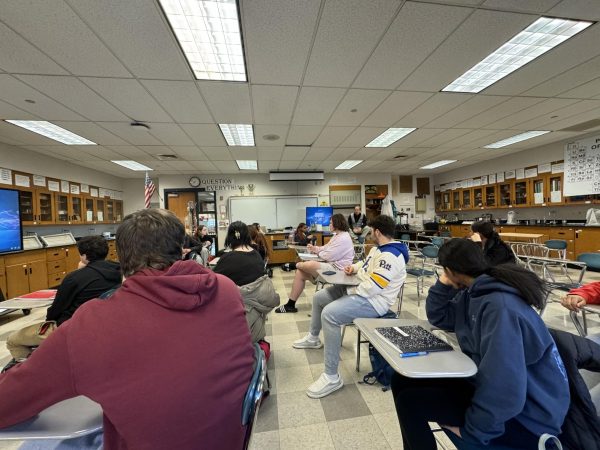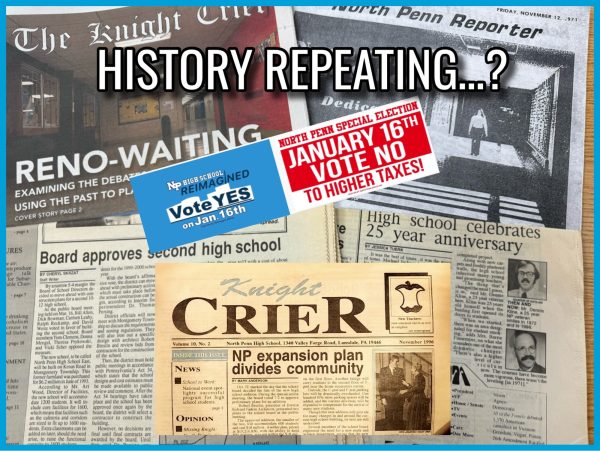OPINION: Becoming less local might also mean becoming less informed
Demise of local newspapers connected to loss of small business and small town identity

Extra Extra Read all about it… People aren’t reading about it in local newspapers anymore
Opinions expressed in the Op/Ed section of The Knight Crier are not necessarily reflective of the views of the entire staff of the KC.
We have come a long way from newspaper boys yelling ‘Extra! Extra!’ on the street for a nickel to rolling over in bed and seeing news from across the world right at our fingertips with our morning coffee.
Now, printed copies of newspapers are rare and have been cut out of most people’s lives. People who are usually seen with them are people who grew up with them, people who challenge the daily crossword puzzle, and the few who really do consume the news via printed byline.
The PBS documentary Storm Lake, which first aired in November, reflects this real-life situation. The Storm Lake Times, run by the Cullen family, faces hardship and challenges as they try to keep their business afloat. Art Cullen, a Pulitzer prize winning journalist explores how to survive in this new day and age.
Although people may think they are in close proximity to local journalism because they pass the newsstand everyday, unless they actually buy the paper, they are not doing much to help. Shopping local also helps, asd it is the local businesses who are likely to buy ad space in local newspapers, thus funding their efforts. It’s all connected.
Without these local journalists we would not be able to get such a variety of content to consume. If it was just one company who regulated all the information the people received, there would be no room for new ideas or improvements. Motivated by their interest along with what they want to share out into the world, these people make it their mission to share stories and events that impact the people around them and people nationwide.
Even though it may not feel as though local journalism is the predominant source of news; it isn’t far behind TV channels and news conglomerates. They are the backbone of getting information quickly and efficiently, making sure they are delivering the best content possible.
However, people are not as accommodating as they used to be. Either people do not want to pay for it or do not want to go out and buy a physical newspaper they will not need in three days time.
“People aren’t supporting journalism like they used to,” Art Cullen said in the PBS documentary Storm Lake.
People no longer sit down just to read the news or they just do not have the time to do so.
“People getting along doesn’t really make news,” Cullen added.
The attention span of the new generation has been cut in half comparatively to the people who grew up before the explosion of popularity in cell phones. The cell phone has cut the accessibility of local news exponentially.
“People want the news for free and don’t find it worth it,” Cullen explained.
Because of cell phones and the internet, access to the news has become easier than ever. News apps are free with unlimited amounts of articles to look at, undermining organizations trying to make a profit. When scrolling though an article or a recipe and a box appears that calls for a monetary exchange, people will immediately click away and change to a website that does not require money or a subscription—it’s just easier that way.
This all relates back to the prospect of major corporations and big businesses taking over all prospects of consumerism. The mom and pops shops that sponsor the local newspaper are being run out of business by online stores such as Amazon. And the pandemic has not helped. Them shutting down is always creeping around the corner and terries local newspapers.
As newspapers begin to see the light at the end of the tunnel, citizens of small towns can prevent this and help revive them back to life. By buying local newspapers and supporting neighborhood businesses, it revitalizes the whole community and benefits everyone.











